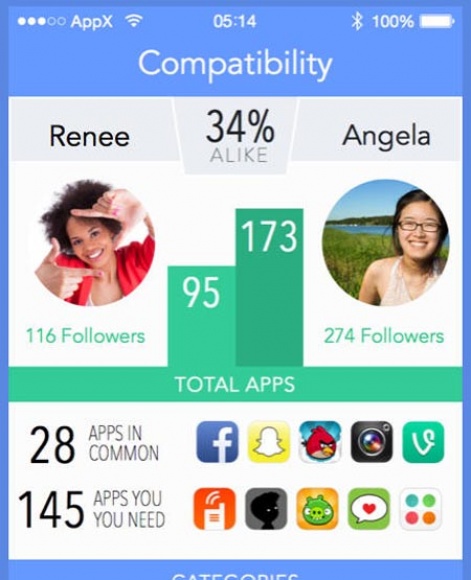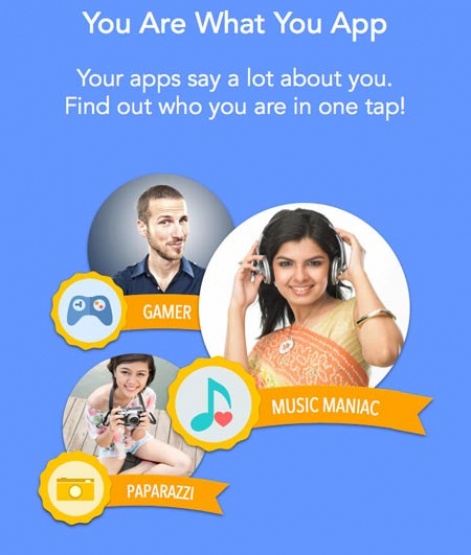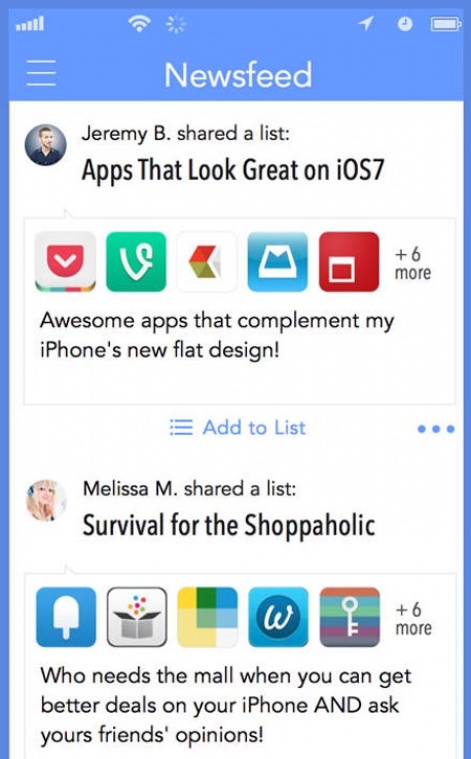You can always have a lively debate about just how broken the app discovery process currently is.
With app store promotional slots controlled by big platform holders and user acquisition dominated by big advertising budgets, the feeling is that the industry is becoming constipated.
If that is the case, Joe Bayen, co-founder of ICS Mobile - the company behind FreeAppADay - is preparing a big spoon of caster oil.
His latest project is AppXchange, which has the goal to build an active app community that will harness the virality of Facebook, Twitter and other social networks with the expertise (or the perhaps the AppXpertise) of community gurus.
We caught up with Bayen to see how the soft launch of AppXchange is going and his plans to ramp up activity in 2014.
Pocket Gamer: What was the inspiration behind AppXchange?
Joe Bayen: Over the past 2 years and particularly in 2013, we officially entered what I call "the age of sophistication" - an era which calls for more advanced analytics, top-of-the-line-reporting etc.
Nowadays, any developer would face certain death if they omitted an advanced analytics solution. Another major mis-step would be to move forward with the development of a freemium title without a dedicated monetization team in place.
In this new context, the market forces required us to develop a data-driven solution for app promotion. Again, in a manner very similar to the FreeAppADay model, we were pressed to develop a platform that would simultaneously satisfy both end-users and developers; which was no small task.

The arrival of Facebook in the mobile ad market place was a key catalyst which inspired us to develop a dedicated social networking platform around apps.
We knew that there was a very strong need for developers to acquire non-incentivized installs on a massive scale, which Facebook helped satisfy. However, we also knew that there was a vacuum left as far targeting users based on their app profiles or app identity. This is where AppXchange positioned itself.
Virality is very important to the app market but it's very difficult to direct and control. What's your plan in that respect?
Over the past four years, we carefully analyzed thousands of apps to determine why some of them became viral and others did not. We came to the conclusion that forcing virality into a product by integrating Facebook or Twitter was not necessarily optimal.
We discovered that the most efficient way to generate some natural virality was to develop an app that inherently needed the presence of close acquaintances to enrich the user experience.
The Bitstrip app is a good example where the automatic generation of comedic situations involving friends creates a much richer experience than a comedic situation involving strangers.
We internally defined this process as adding some emotional currency to an app and used it as a base principle throughout the development of AppXchange, including our embedded gamification systems.
In our specific case scenario, users are encouraged to share their app knowledge to gain access to the collective knowledge of the community. Simply put, today, instead of asking which app is best to download in any category, a user can directly interact with one of our app category experts to obtain an answer instantly. And that's the novelty!
How do celebrities fit into the concept?
We recently signed a deal with ICM Partners, a major worldwide Hollywood talent agency, which represents A-list celebrities such Jodie Foster, Megan Fox, Samuel L. Jackson and more. We are planning to work with celebrities as virality accellerant.
The Justin Bieber-Instagram combination was, for instance, a great example of constructive partnership with a celebrity. However, celebrities are not the core requirement needed to generate virality, as long as the emotional currency is adequately integrated within the app.

As far as the inner-workings of AppXchange, the app simply lays down the ground for a dialogue between celebrities and their fan base around apps. Fans can instantly see what apps their favorite celebrities are using on their devices and celebrities can regularly connect with their fanbase by simply sharing applists.
Additionally, one of the biggest advantages for celebrities is the fact that they can directly communicate and promote their own apps to their fanbase at no cost.
You're also keen to source your own app experts too. What's the process there and how important do you think this crowdsourced gurus can be?
We have an active gamification system in place which uses an algorithm to award expertize points based on specific actions taken by users. For instance, users are awarded expertize points for creating app lists whenever they are liked by a sufficient amount of AppX users.
Essentially, whenever a content is created, it needs to be socially vetted to become validated by the system. There are currently five expertize levels:Novice, Apprentice, Professional, Master and Expert, and users need to achieve specific milestones or accumulate a specific number of expertize points to move on to the next level.
What sort of user base do you think you need to be able to start 'moving the needle' in terms of downloads?
Just as we experienced with FreeAppADay, the viral needle starts to swing in one's favor once it passes the 1 million install mark.
AppXchange uses Facebook and Twitter. Are there any other channels you can hook into?
The next step for us will be to integrate Instagram.
How important do you think AppXchange itself can be as a community?
Appxchange should become a very accurate barometer to determine what's actually hot in the App Store. We are planning on including an AppXchange ranking based on the most shared apps within the ecosystem.

It's easier to buy your way on top of the charts, but much more difficult to pressure people to share apps at will since sharing implies that a user actually likes the app they are sharing. In this context, AppXchange can actually paint an unpolluted picture of the App Store to determine what's hot at any given moment.
You've been launched for a few weeks now. What's the early reaction been like and what the plan for the end of 2013, early 2014?
We soft-launched just a few weeks ago and generated about 50,000 installs, which resulted in the creation of over 9,000 app lists and over 200,000 users relationships, meaning one user follows at least one other user.
We are planning on activating our networks in early 2014, since working on a consumer acquisition campaign during the holiday season in an very crowded market would not be wise.
The apps market is becoming more global so how are you looking to break out of western markets into the big emerging markets?
We are already counting on our partner, GREE, to assist with our deployment in Japan and we are currently in discussing with some major Chinese players to establish a partnership there.
How about Android?
We're planning on launching the Android version of AppXchange in early Q2.
Thanks to Joe for his time.
You can download AppXchange for iOS here [iTunes link].






















